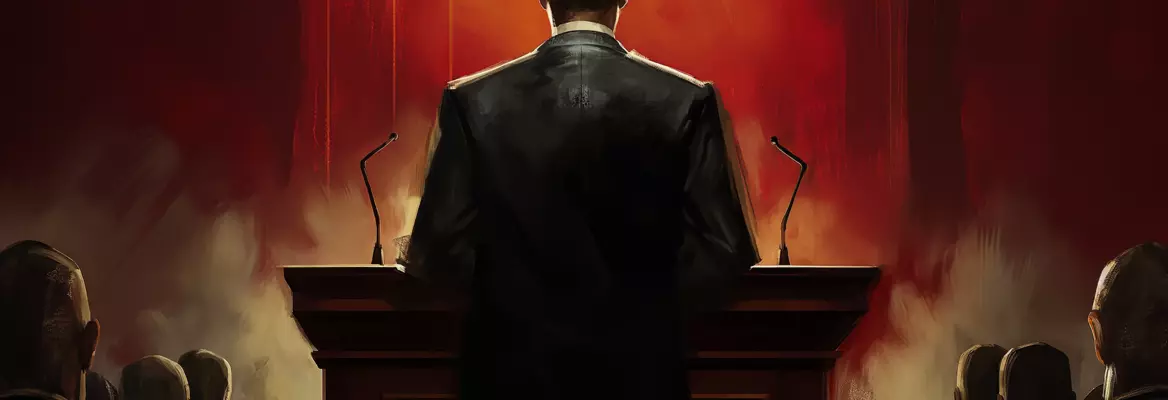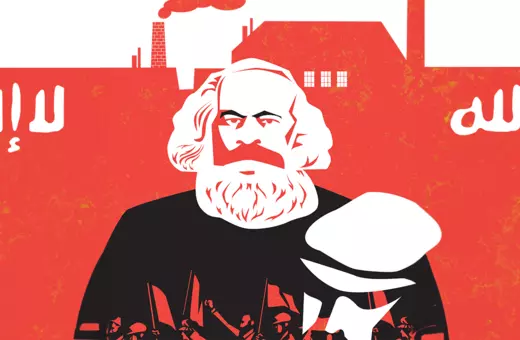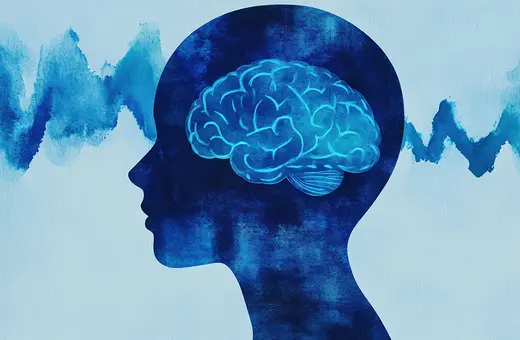Echo chambers, polarization and “post-truth” politics are destroying rational debate. Can democracy survive? The solution, it’s often claimed, is to reaffirm our commitment to Truth, Reason and Objective Reality, as bulwarks against disinformation spread by figures like Donald Trump. But it’s a fantasy to think this might work, argues Chris Voparil. Instead, we must focus on rebuilding emotional bonds with those with whom we disagree, to create the right environment for productive debate and the emergence of agreement.
Democracy in crisis
Political discourse, in the U.S. and elsewhere, is in a state of acute disrepair approaching utter dysfunction. Tribalism has become the norm and is further entrenched daily. Divides between political opponents have grown so wide as to render group identities unbridgeable chasms that none dare cross. And a post-truth or post-fact milieu has ushered in Orwellian dynamics where each side not only lays claim to “alternative facts,” but 2 + 2 = 5 has been made believable. Many remain mired in the quicksand of echo chambers and epistemic bubbles, seemingly uninterested in rescue.
Distressingly, this situation has made a mockery of public reason and the idea that rational deliberation, with enough time and space, could achieve consensus and govern democratic life. Does this spell the end of deliberative democracy?
___
We must rethink long-entrenched assumptions about the connection between fact and belief, and about truth and reason
___
The solution, it’s often claimed, is to reestablish our ties to objective reality. The hope is that the authority of Truth or Reality or Rationality can serve as a bulwark against the deterioration of democratic norms and the rise of popular support for authoritarianism. But this hope is forlorn – or so this article will argue. Once-hallowed truisms about the power of the better argument and assent-inducing “facts of the matter” now strike us as quaint, if not downright absurd. Agreement of our peers no longer can be counted on as a sign of truth or rationality. Everything is up for grabs and disputed. Conspiracy theories abound.
Instead, we must rethink long-entrenched assumptions about the connection between fact and belief, and about truth and reason. In place of simply reiterating our commitment to objective truth and rationality, and decrying a world that no longer seems to value facts, we need to shift our focus towards rebuilding our emotional bonds – our affective ties – towards those with whom we disagree. Only then may rational debate – and perhaps even agreement about facts –follow.
___
The pursuit of knowledge presupposes a community with certain ethical commitments
___
The importance for deliberative democracy of a background of strong affective ties between citizens was a central concern of the philosopher Richard Rorty. He garnered posthumous political notoriety during the 2016 U.S. presidential election for passages he wrote in the mid-1990s, in which with uncanny prescience he warned of the rise of a Donald Trump-like figure. Rorty’s insights into the limits of rational persuasion and the importance of attending to our emotional relationships with each other point to a practical path forward – and just maybe offer hope.
The limits of appeals to truth
A fundamental insight of the tradition of American pragmatism in which Rorty stands is that democratic debate and discussion takes place within a “cultural matrix” (as John Dewey called it) rather than transcends it. What this means is that the pursuit of knowledge presupposes a community with certain ethical commitments, and cultivating those commitments is part and parcel of making progress towards knowledge.





















Join the conversation